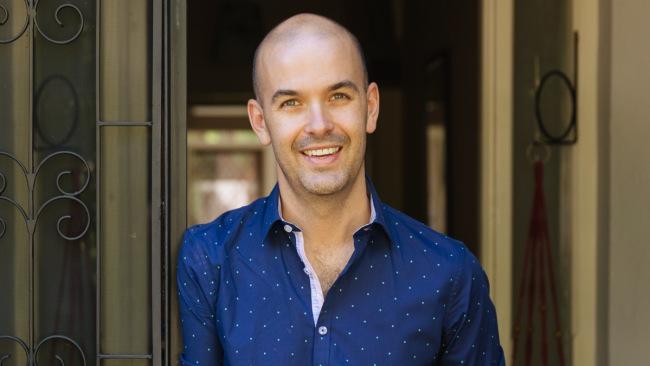What it’s like to live with multiple sclerosis
AT the age of 33, James was fit and active: like anyone else, life brought its challenges, but he had no reason to think that his health would be one of them. Concerns began when James noticed a numbness in his thumb. It may have seemed a minor issue, but the numbness refused to go away, so he visited the doctor hoping to find a remedy.

AT the age of 33, James was fit and active: like anyone else, life brought its challenges, but he had no reason to think that his health would be one of them. Concerns began when James noticed a numbness in his thumb. It may have seemed a minor issue, but the numbness refused to go away, so he visited the doctor hoping to find a remedy.
Unsure of what was causing the problem, James’s doctor referred him to a neurologist: following tests, the worst-case scenario was confirmed: James had multiple sclerosis (MS).
MS is the most common chronic neurological condition affecting young Australian adults – three out of four people with MS are diagnosed before the age of 35. There is no known cause and no known cure. A degenerative condition, MS affects the brain, spinal cord and nervous system. The body’s own immune system turns on itself, attacking the myelin, the protective coating around the nerves. This results in inflammation and lesions, which inhibit the signals sent by the nerves between the brain and the rest of the body.
Each person with MS experiences the condition differently. Some will have difficulty with movement and muscle strength, others will experience altered sensations, and some might find their cognitive ability and emotions affected. James was fortunate that he was diagnosed quickly – early diagnosis and treatment can make an enormous difference to the way people with MS are able to manage their condition. James’s doctor was able to prescribe medication immediately that helped control his symptoms.
Nevertheless, it was a frightening time for James. Being diagnosed with a major condition like MS can come as a shock, and it’s never easy to process the way your life has changed. James didn’t know what the future would hold for him, how MS would affect not only himself, but his family.
In a situation like this, it’s vital to have a strong support network to help deal with the fears and uncertainty that a diagnosis brings. Through his doctor, James made contact with The Multiple Sclerosis Society of South Australia and Northern Territory Inc. (MS Society).
The MS Society provides a range of support services for people with MS, from nursing and counselling, to occupational therapy and physiotherapy. This kind of support, to ensure people with MS don’t go through the experience alone, can be essential.
One of the greatest things the society did for James was putting him in touch with an MS nurse, who visited him at home to talk to him, and his family, about the realities of his condition and answer any questions they had. In those first few hours the nurse talked through what multiple sclerosis actually is, and provided counselling. For James, still feeling extremely scared by this news that had overwhelmed him, having the nurse there to talk to was a godsend. Since his diagnosis James’s nurse has continued to support him and help him manage his condition – the knowledge that she is always available for a chat over the phone is a constant comfort.
Life with multiple sclerosis will always have its challenges. James still experiences numbness on occasion, and at times suffers from periods of fatigue, which can interfere with his full-time job. Sometimes it’s necessary to pull back from work and take a break: James is fortunate to have a supportive employer to help him at these times. That employer is one part of the support network – his family, friends and the MS Society – that help James manage his condition and maintain the active lifestyle that he enjoyed before his diagnosis.
James’s other big focus is on spreading awareness of multiple sclerosis. By sharing his own story, he hopes to help others understand the nature of MS, and the help and support that is available, as well as the importance of early diagnosis. “I know from my own experience that early diagnosis and treatment can improve the quality of life for people with MS,” he says.
He is also keen to let the world know of the great work of the MS Society. “My great hope for the future,” James says, “is that others can find help and support through the MS Society’s great work and a cure will be found for MS.” To this end, he is throwing his support behind the MS Game Changer Lottery, an initiative of the Multiple Sclerosis Society of SA and NT. All proceeds from the lottery go to the society, not only helping fund research into the cause and cure for MS, but providing assistance for the society to continue its support and services for people with MS. James is living proof of the huge difference the MS Society can make in the lives of people with MS, with the help of the community.
Originally published as What it’s like to live with multiple sclerosis


